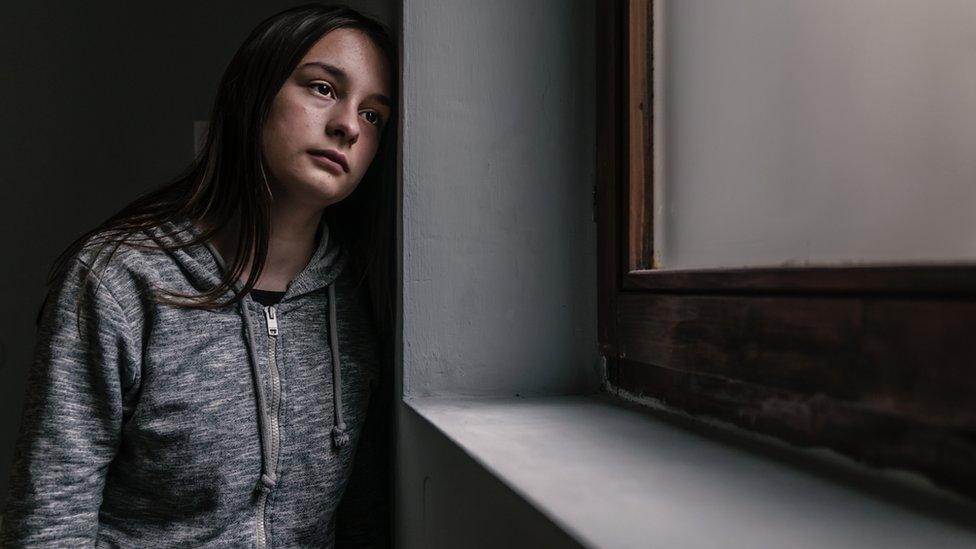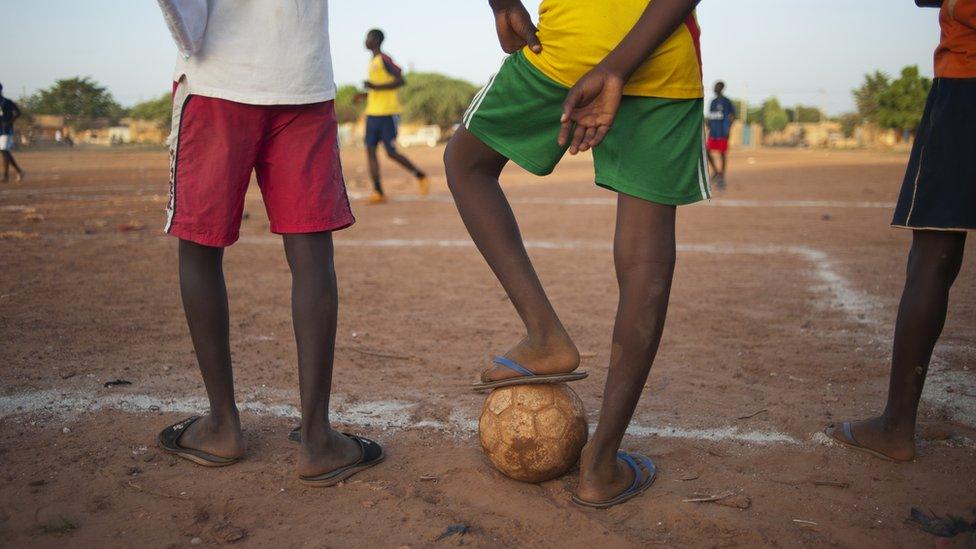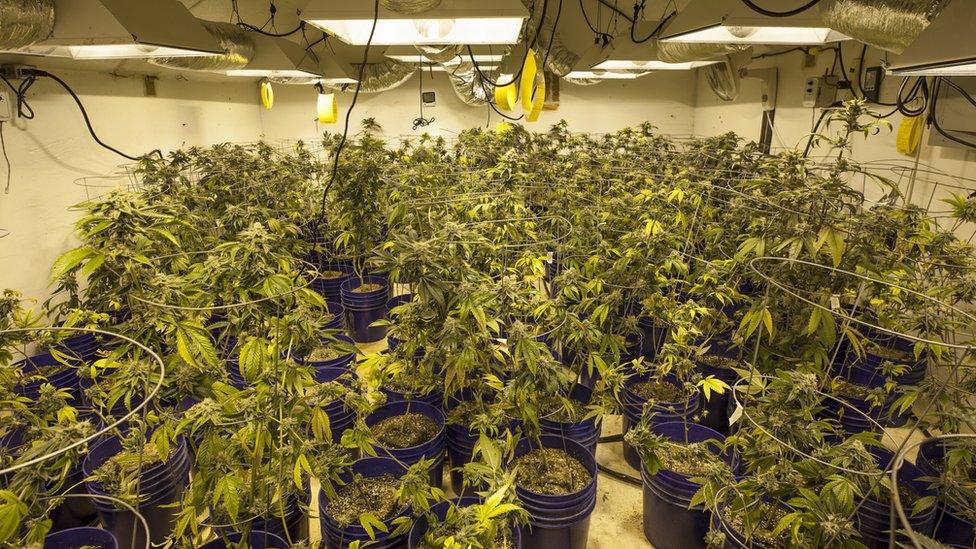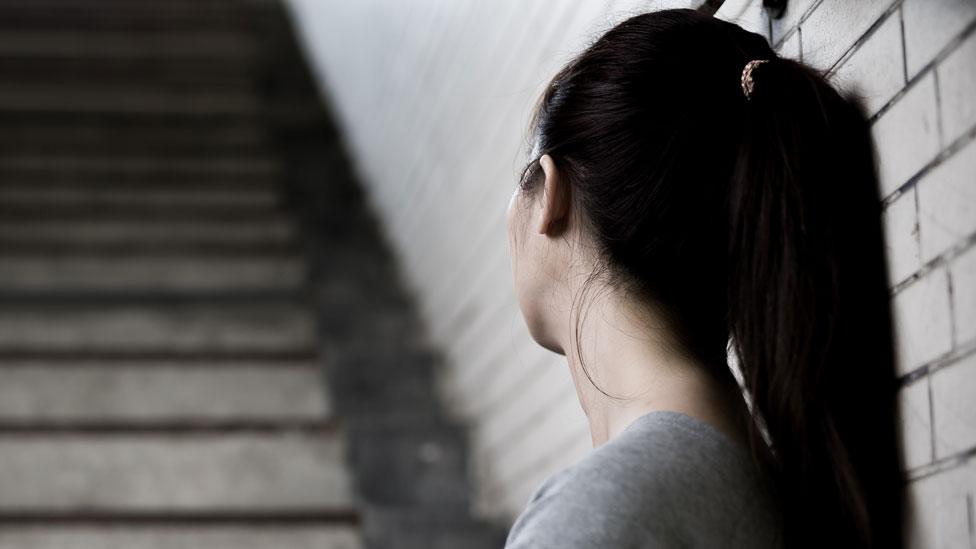Human trafficking: Victims 'stuck in limbo for years'
- Published

Suspected trafficking or modern slavery victims are being put at risk by delays in the system designed to protect them, a BBC investigation has found.
Government documents obtained by Radio 4's File on 4 show 2,200 people waiting more than a year for a decision on their status in the UK.
Memos reveal officials were concerned the system left people "in limbo".
The Home Office says it is committed to reforms and has more than doubled its case workers to reduce the backlog.
The documents seen by BBC relate to the situation as of November 2018. They also reveal more than 1,000 people had been awaiting a decision for over 18 months at that point, while 100 had been waiting about three years.
Internal memos dated September 2017 reveal government officials were concerned about "an antiquated system" that made intelligence "difficult to analyse", and "substantial delays" that left suspected victims "in limbo".
The National Referral Mechanism, external, or NRM, is the government system designed to identify and support victims, while making the prosecution of traffickers easier.
Suspected victims are given 45 days to recover while the Home Office investigates their case. A decision on whether their claim is genuine should be made "as soon as possible" after this.
A positive decision could affect their immigration status and the likelihood of them facing criminal charges.
But charities say that in practice long delays can cause unnecessary suffering, stop people moving on with their lives and expose them to the risk of being trafficked again.
Sinister football scouts

The story of Peter, not his real name, began in Nigeria where he was raised by a guardian.
When he reached his teens, an exciting opportunity arose - football scouts arrived in town.
There were to be trials and the best players would be awarded contracts in Europe. Peter's talents were quickly spotted.
"It was the best news of my life," he says, "a dream come true."
But there was a sinister purpose to the trials - the scouts were looking for the most suitable victims for child trafficking.
When Peter arrived at Heathrow, he was whisked off to a house, locked in a room and abused by a succession of men.
It was only when his trafficker came home drunk one evening and left a key out that Peter was able to escape.
After a period of homelessness, he eventually made contact with children's charity Every Child Protected Against Trafficking (ECPAT) and was placed on the NRM.
Peter was hoping for a decision about his future within a few weeks but it never came. A year passed, then two, then three.
All the time, he was worried about deportation. "It's horrible. You can't go forwards, you can't go backwards," he says, "Sometimes you just feel like taking your own life."
Kate Roberts, from the Human Trafficking Foundation, said such an experience was "hugely damaging".
"We are talking about people who have left a situation of control and then they've entered another system where they have no time frame, no control," she said.
Victim jailed
It is during that period, of delays and uncertainty, that alleged victims are most vulnerable to being re-trafficked.

Vinh was trafficked and made to work on a cannabis farm
Vinh, again not his real name, was first picked up in a police raid on a cannabis farm.
He was a teenager, locked inside, no papers, no English - but the warning signs were not spotted.
He was jailed for 12 months. It was only towards the end of his sentence that an official recognised that he was a victim rather than a perpetrator and referred him to the NRM.
However, Vinh owed money to his traffickers and the NRM does not allow alleged victims to work. So he ran away and ended up back on a cannabis farm.
A second chance
Det Supt Phil Brewer, head of the Anti-Trafficking Unit at the Metropolitan Police, told the BBC delays could "impact massively" on its ability to prosecute.
"But this isn't just about prosecution… success also needs to be judged on the fact we have removed someone from an exploitative situation and given them a second chance."
In a statement the Home Office said as well as tackling delays by doubling the amount of case workers on the NRM, it was making the system fairer by placing decision-making under a single unit.
For Peter, the footballer, receiving a positive decision, even after three years, was "amazing".
"That day," he says, "a lot of people said, 'Your face is bright, you are happy,' it was just a huge relief."
File on 4: Finding Freedom - The Fight Against Modern Slavery is on BBC Radio 4 on Tuesday 22 January at 20:00 GMT.
- Published3 January 2018

- Published30 July 2018

- Published26 March 2018

- Published17 January 2018
